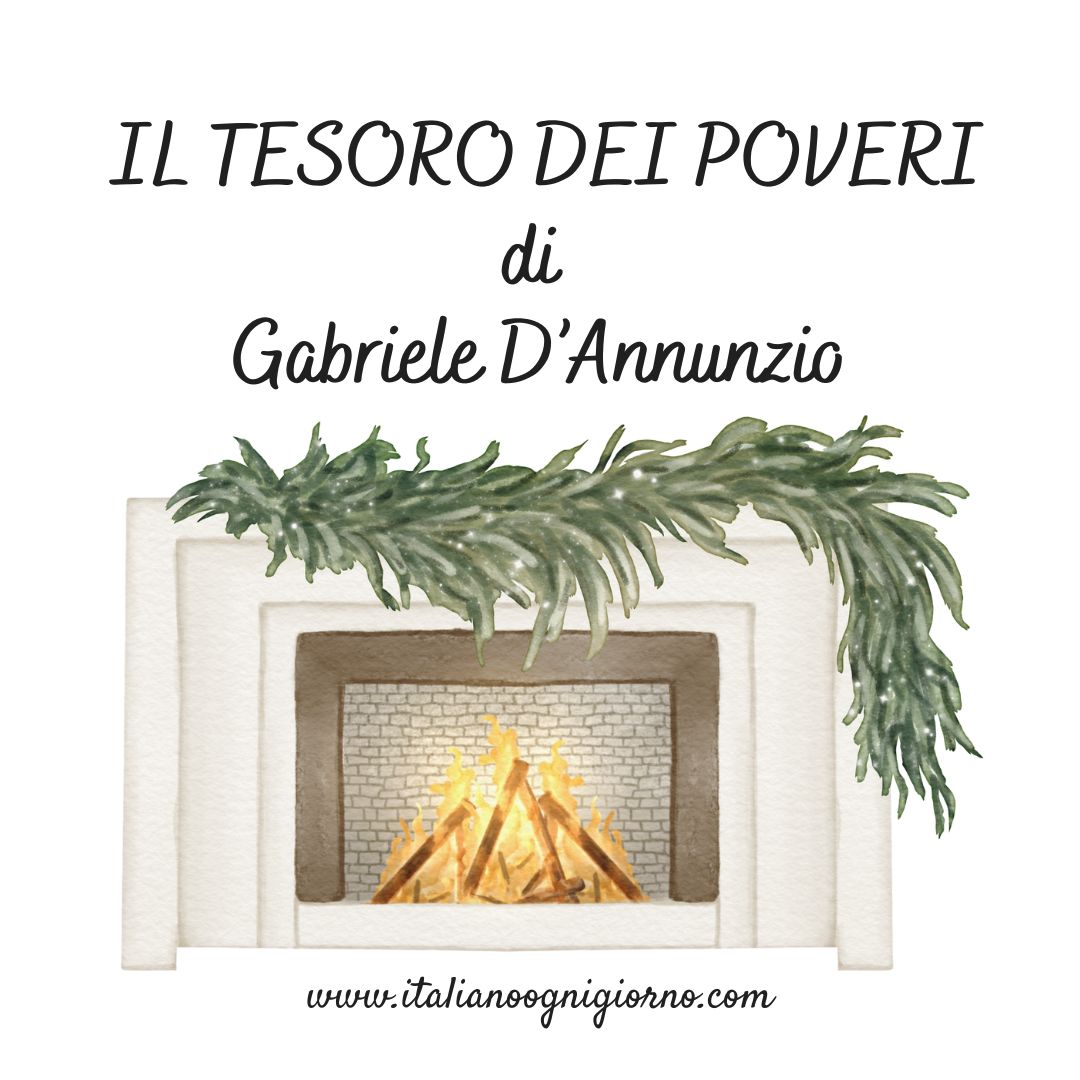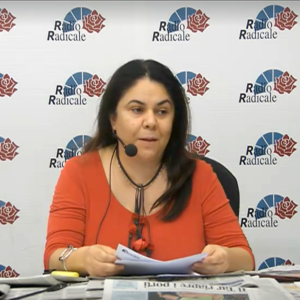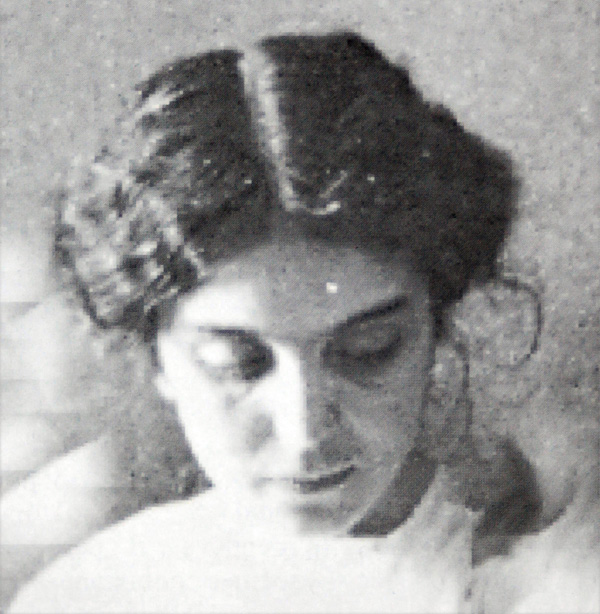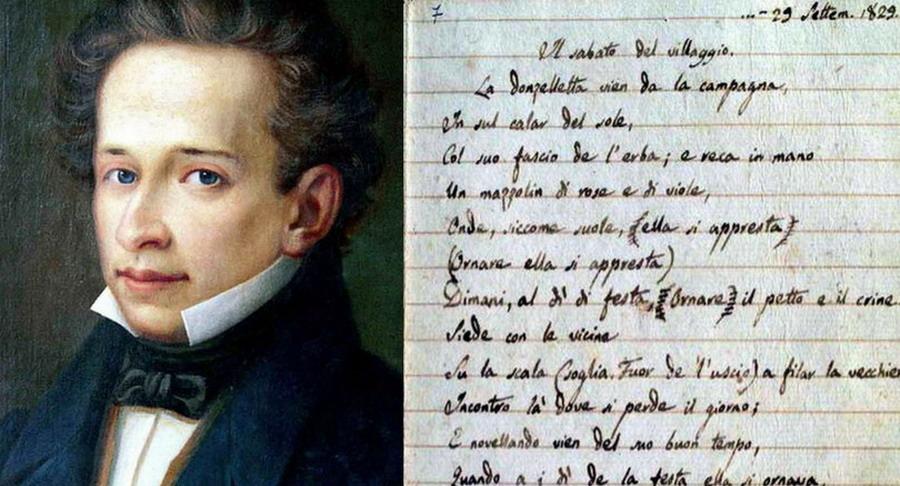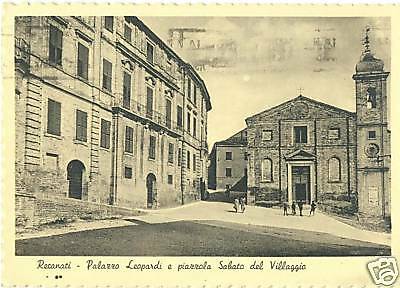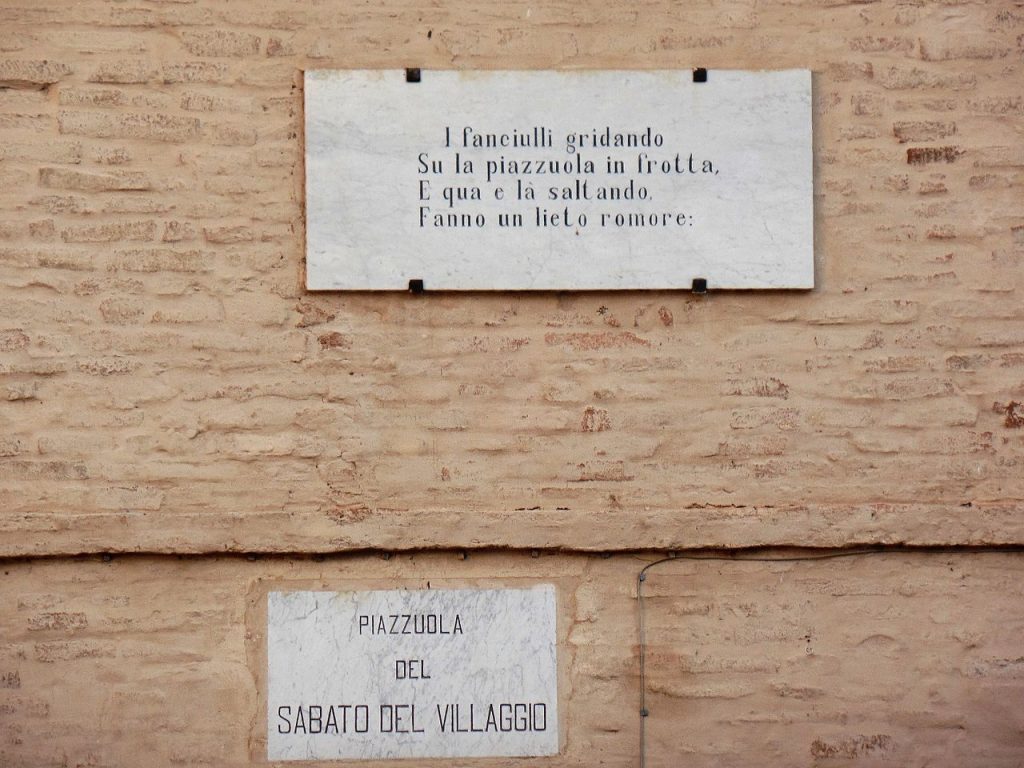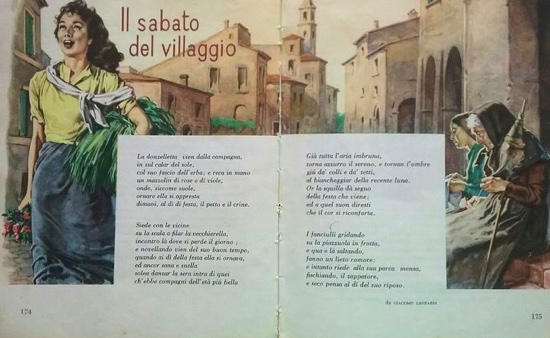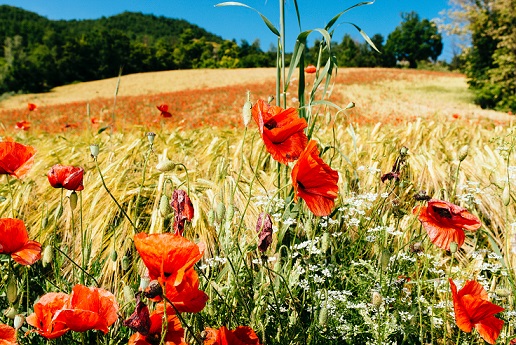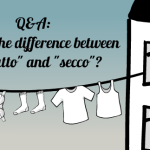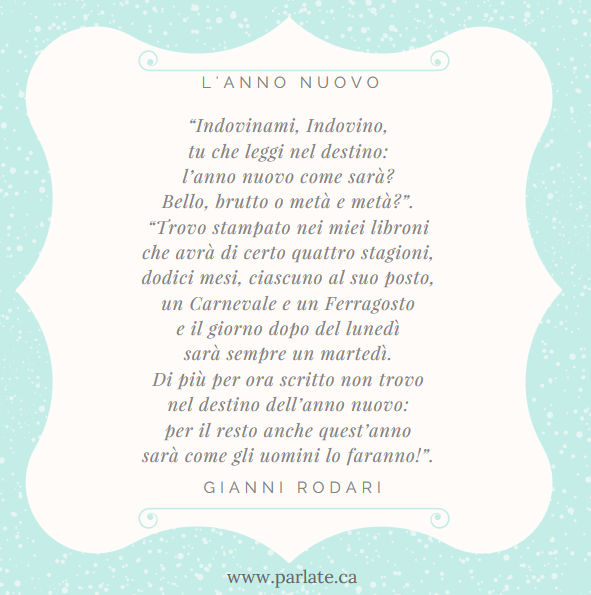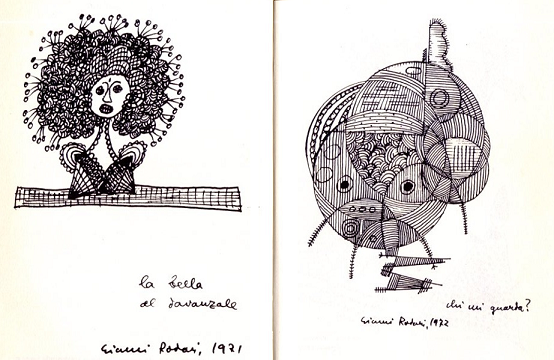(English follows)
Ascolta la storia:
Racconta un poeta:
C’era una volta non so più in quale terra una coppia di poverelli.
Ed erano, questi due poverelli, così miseri che non possedevano nulla, ma proprio nulla di nulla.
Non avevano pane da metter nella madia, né madia da mettervi pane.
Non avevano casa per mettervi una madia, né campo per fabbricarvi casa.
Se avesser posseduto un campo, anche grande quanto un fazzoletto, avrebbero potuto guadagnare tanto da fabbricarvi casa.
Se avessero avuto casa, avrebbero potuto mettervi la madia.
E se avessero avuto la madia, è certo che in un modo o in un altro, in un angolo o in una fenditura, avrebber potuto trovare un pezzo di pane o almeno una briciola.
Ma, non avendo né campo, né casa, né madia, né pane, erano in verità assai tapini.
Ma non tanto del pane lamentavano la mancanza quanto della casa.
Del pane ne avevano a bastanza per elemosina, e qualche volta avevan anche un po’ di companatico e qualche volta anche un sorso di vino.
Ma i poveretti avrebber preferito rimaner sempre a digiuno e possedere una casa dove accendere qualche ramo secco o ragionar placidamente d’innanzi alla brace.
Quel che v’ha di meglio al mondo, in verità, a preferenza anche del mangiare, è posseder quattro mura per ricoverarsi. Senza le sue quattro mura l’uomo è come una bestia errante.
E i due poverelli si sentirono più miseri che mai, in una sera triste della vigilia di Natale, triste soltanto per loro, perché tutti li altri in quella sera hanno il fuoco nel camino e le scarpe quasi affondate nella cenere.
Come si lamentavano e tremavano su la via maestra, nella notte buja, s’imbatterono in un gatto che faceva un miagolìo roco e dolce.
Era in verità un gatto misero assai, misero quanto loro, poiché non aveva che la pelle su le ossa e pochissimi peli su la pelle.
S’egli avesse avuto molti peli su la pelle, certo la sua pelle sarebbe stata in miglior condizione.
Se la sua pelle fosse stata in condizion migliore, certo non avrebbe aderito così strettamente alle ossa.
E s’egli non avesse avuta la pelle aderente alle ossa, certo sarebbe stato egli forte abbastanza per pigliar topi e per non rimaner così magro.
Ma, non avendo peli ed avendo in vece la pelle su l’ossa, egli era in verità un gatto assai meschinello.
I poverelli son buoni e s’aiutan fra loro.
I due nostri dunque raccolsero il gatto e né pure pensarono a mangiarselo; ché anzi gli diedero un po’ di lardo che avevano avuto per elemosina.
Il gatto, com’ebbe mangiato, si mise a camminare d’innanzi a loro e li condusse in una vecchia capanna abbandonata.
C’eran là due sgabelli e un focolare, che un raggio di luna illuminò un istante e poi sparve.
Ed anche il gatto sparve col raggio di luna, cosicché i due poverelli si trovaron seduti nelle tenebre, d’innanzi al nero focolare che l’assenza del fuoco rendeva ancor più nero.
– Ah! – dissero – se avessimo a pena un tizzone! Fa tanto freddo! E sarebbe tanto dolce scaldarsi un poco e raccontare favole!
Ma, ohimè, non c’era fuoco nel focolare poiché essi erano miseri, in verità miseri assai.
D’un tratto due carboni si accesero in fondo al camino, due bei carboni gialli come l’oro.
E il vecchio si fregò le mani, in segno di gioia, dicendo alla sua donna:
– Senti che buon caldo?
– Sento, sento – rispose la vecchia.
E distese le palme aperte innanzi al fuoco.
– Soffiaci sopra – ella soggiunse. La brace farà la fiamma.
– No – disse l’uomo – si consumerebbe troppo presto.
E si misero a ragionare del tempo passato, senza tristezza, poiché si sentivano tutti ringagliarditi dalla vista dei due tizzoni lucenti.
I poverelli si contentan di poco e son più felici. I nostri due si rallegrarono, fin nell’intimo cuore, del bel dono di Gesù Bambino, e resero fervide grazie al Bambino Gesù.
Tutta la notte continuarono a favoleggiare scaldandosi, sicuri omai d’essere protetti dal Bambino Gesù, poiché i due carboni brillavan sempre come due monete nuove e non si consumavano mai.
E, quando venne l’alba, i due poverelli che avevano avuto caldo ed agio tutta la notte, videro in fondo al camino il povero gatto che li guardava da’ suoi grandi occhi d’oro.
Ed essi non ad altro fuoco s’erano scaldati che al baglior di quelli occhi.
E il gatto disse:
– Il tesoro dei poveri è l’illusione.
Prima pubblicazione in «La Tribuna», 22 dicembre 1887, rubrica Favole di Natale, testo siglato dal
Duca Minimo.
Trascrizione da Gabriele D’Annunzio, Il tesoro dei poveri, in Gabriele D’Annunzio, Tutte le
novelle, a cura di Annamaria Andreoli e Marina De Marco, Milano, Mondadori, 1992, pp. 702-704.
English version “The Treasure of the Poor”
A poet says:
Once upon a time, I don’t know which land anymore, there lived a poor couple.
And these two poor people were so miserable that they owned nothing, absolutely nothing at all.
They had no bread to put in the cupboard, nor a cupboard to put bread in.
They had no house to put a cupboard in, nor field to build a house.
If they had owned a field, even the size of a handkerchief, they could have made money enough to build a house there.
If they had a house, they could have put the cupboard there.
And if they had had the cupboard, it is certain that in one way or another, in a corner or in a crack, they could have found a piece of bread or at least a crumb.
But, having neither field, nor house, nor cupboard, nor bread, they were in truth very miserable.
But they didn’t complain about the lack of bread so much as of the house.
They had enough bread for alms, and sometimes they even had a bit of bread
and sometimes even a sip of wine.
But these poor people would have preferred to always remain without food and have a house to light up a few dry branches or calmly talk in front of the embers.
What is best in the world, in truth, even better than eating, is to have four
walls for shelter. Without his four walls man is like a wandering beast.
And these two poor people felt more miserable than ever, on a sad evening on Christmas Eve, sad only for them, because all the others that evening have a fire in the fireplace and shoes almost sinking in the ash.
While they were moaning and trembling on the main road, in the dark night, they came across a cat that made a hoarse and sweet meow.
It was in truth a very miserable cat, as miserable as them, since it had only the skin on its bones and very few hairs on the skin.
If it had had a lot of hair on its skin, its skin would certainly have been in better condition.
If its skin had been in better condition, it certainly wouldn’t have clung so tightly to the bone.
And if it hadn’t had skin adhering to its bones, it certainly would have been strong enough to catching mice and so as not to remain so thin.
But, having no hair and instead having skin on its bones, it was in truth very much a petty cat.
Poor people are good and help each other.
So our the picked up the cat and didn’t even think about eating it; because in fact they gave it a some lard that they had received for alms.
The cat, as soon as it had eaten, began to walk in front of them and led them to an old abandoned hut.
There were two stools there and a hearth, which a ray of moonlight illuminated for an instant and then disappeared.
And even the cat disappeared with the moonbeam, so that the two poor people found themselves sitting in the darkness, in front of the black hearth which the absence of fire made even blacker.
– Ah! – they said – if only we had a piece of coal! It’s very cold! And it would be so sweet to warm up a little and tell fairy tales!
But, alas, there was no fire in the hearth because they were miserable, very miserable indeed.
Suddenly two coals lit up at the bottom of the fireplace, two beautiful coals as yellow as gold.
And the old man rubbed his hands, as a sign of joy, saying to the woman:
– Do you feel that good heat?
– I feel it, I feel it – replied the old woman.
And she spread her open palms before the fire.
“Blow on it,” she added. Its embers will make the flame.
– No – said the man – it would wear out too soon.
And they began to talk about the past time, without sadness, because they all felt refreshed from the sight of the two shining embers.
The poor are content with little and are happier. Our two rejoiced, even to their hearts, of the beautiful gift of Baby Jesus, and gave fervent thanks to Baby Jesus.
All night they continued to tell stories while warming themselves, now sure of being protected by the Child Jesus, because the two coals always shone like two new coins and were never consumed.
And, when dawn came, the two poor people who had been warm and comfortable all night, saw at the bottom of the fireplace the poor cat who looked at them with his big golden eyes.
And they had warmed themselves with no other fire than the gleam of those eyes.
And the cat said:
– The treasure of the poor is illusion.
First publication in «La Tribuna», 22 December 1887, Christmas Fairy Tales column, text signed by Duke Minimus.
Transcription from Gabriele D’Annunzio, The treasure of the poor, in Gabriele D’Annunzio, Tutti le novelle, edited by Annamaria Andreoli and Marina De Marco, Milan, Mondadori, 1992, pp. 702-704.
Perfeziona i verbi e la pronuncia italiana nell’Accademia dei Verbi.
Troverai tanti esercizi pratici che ti aiuteranno a coniugare tutti i tempi verbali e a pronunciarli bene:
- Il Discorso diretto e discorso indiretto in italiano

- I massacri delle foibe – Il Giorno del Ricordo

- Un racconto di Natale: Il Tesoro dei Poveri di Gabriele D’Annunzio

- Estate di San Martino- leggenda e tradizioni

- I verbi fraseologici: venire/andare a prendere

- Michela Murgia: tenace scrittrice e attivista italiana

- I Vini italiani |Storia e Cultura

- Come diventare migliori comunicatori in italiano

- 3 ways to pronounce the s in Italian


